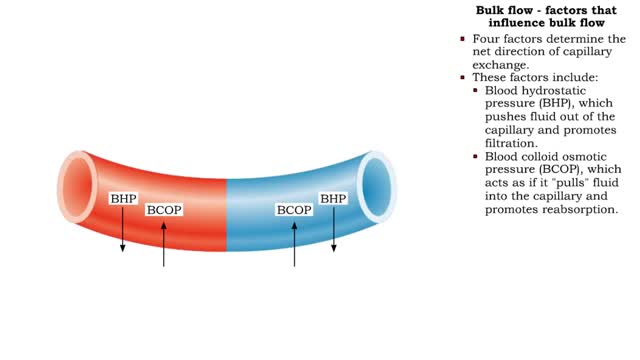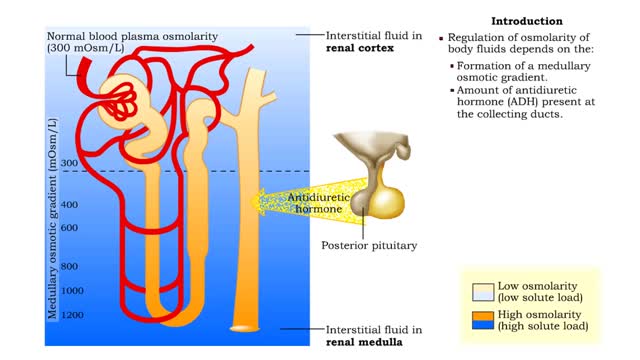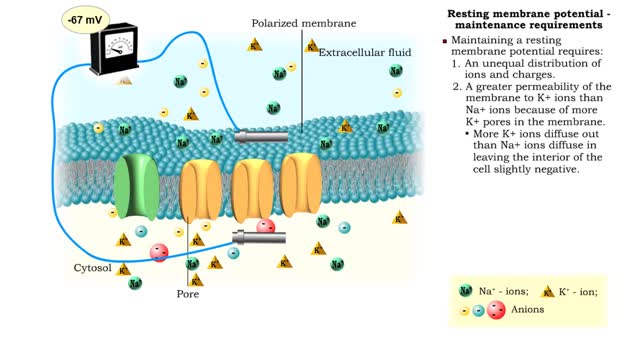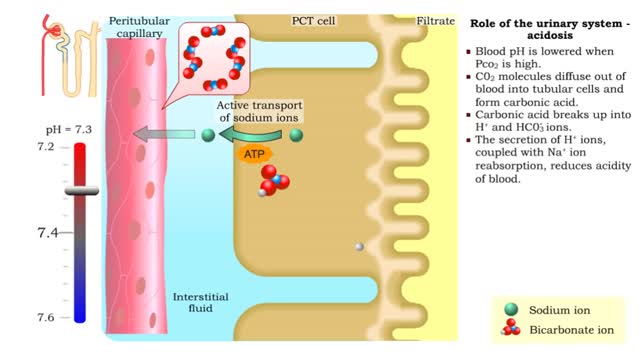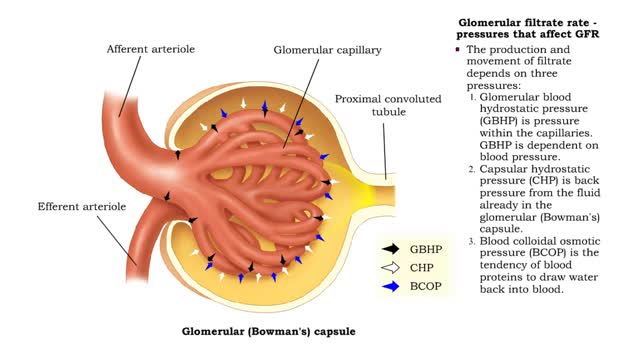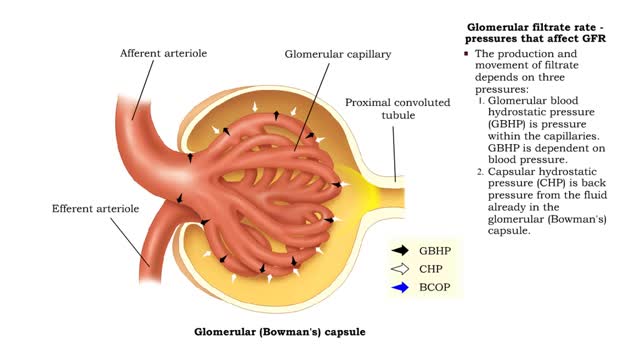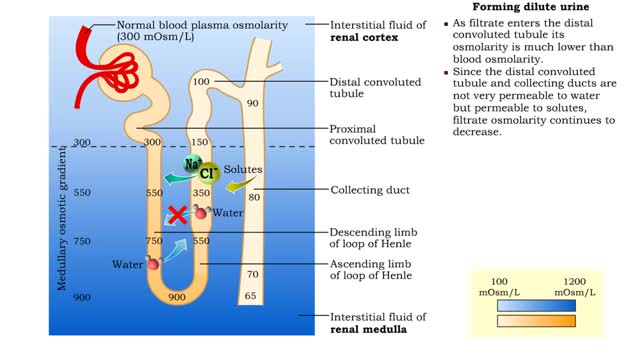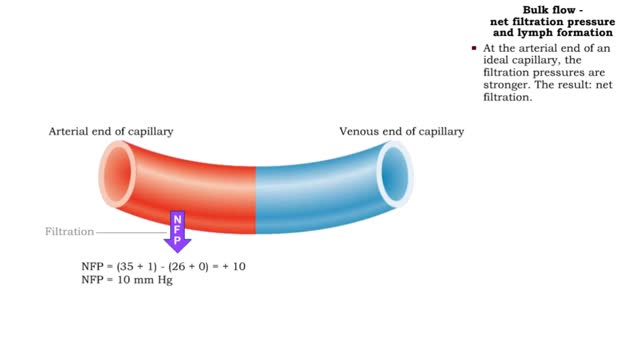Search Results
Results for: 'ingested fluids'
Bulk flow - factors that influence bulk flow
By: HWC, Views: 9282
• Bulk flow helps regulate the relative volumes of blood and interstitial fluid. • Flow from blood to interstitium is called filtration. • Flow from interstitium to blood is called reabsorption. • Four factors determine the net direction of capillary exchange. • These factors in...
Medullary osmotic gradient - influencing factors
By: HWC, Views: 10040
▪ Maintenance of fluid volume and composition, despite changes in water input and output, is crucial to a healthy life. ▪ Regulation of blood's osmolarity, or solute concentration, is a function of the nephron. • Normal osmolarity is maintained by the ability of the nephron to alter uri...
Resting membrane potential - electrical polarity and maintenance requirements
By: HWC, Views: 9380
• A resting membrane potential exists when there is a buildup of: 1. positive ions outside the membrane. 2. negative ions inside the membrane. • Membranes with opposing charges are said to be polarized. • The difference in charge applies only to the small distance across the membran...
Role of the urinary system - acidosis and alkalosis
By: HWC, Views: 9873
• Tubular cells of the proximal convoluted tubule and collecting tubules can alter filtrate pH and therefore blood pH. • These cells can affect blood pH with two coupled mechanisms: • Reabsorption of bicarbonate ions. • Secretion of hydrogen ions. • The reabsorption of bicarbonate...
Glomerular filtrate rate: pressures that affect GFR, NFP & GFR and blood composition
By: HWC, Views: 10167
• The glomerular filtration rate is the amount of filtrate formed per minute within the renal corpuscle. • Once the filtrate is formed it moves down the tubule. • The production and movement of filtrate depends on three pressures: I. Glomerular blood hydrostatic pressure (GBHP) is ...
Glomerubular filtrate rate -pressures that affect GFR and net filtration pressure
By: HWC, Views: 10093
• The glomerular filtration rate is the amount of filtrate formed per minute within the renal corpuscle. • Once the filtrate is formed it moves down the tubule. • The production and movement of filtrate depends on three pressures: I. Glomerular blood hydrostatic pressure (GBHP) is pre...
Forming urine ( influencing factors), Forming dilute urine & Forming concentrated urine
By: HWC, Views: 10144
• The amount of urine produced by the nephron depends on : • Body fluid volume. • Body fluid composition. • Dilute urine is formed when the body is normally hydrated. • The medullary osmotic gradient determines the osmolarity of the filtrate. • Filtrate osmolarity increase...
Labor and Delivery - Infant Cord Apgar
By: Administrator, Views: 404
As soon as your baby is born, a delivery nurse will set one timer for one minute and another for five minutes. When each of these time periods is up, a nurse or physician will give your baby her first "tests," called Apgars. This scoring system (named after its creator, Virginia Apgar) helps t...
Bulk flow - Factors that influence bulk flow
By: HWC, Views: 9896
• Bulk flow helps regulate the relative volumes of blood and interstitial fluid. • Flow from blood to interstitium is called filtration. ■ Flow from interstitium to blood is called reabsorption. ■ Four factors determine the net direction of capillary exchange. ■ These factors in...
Advertisement



